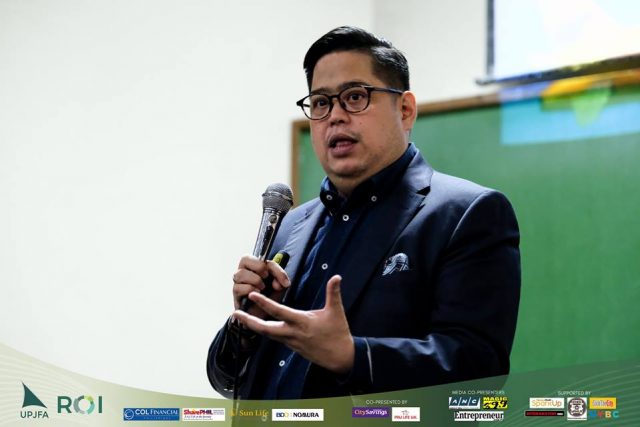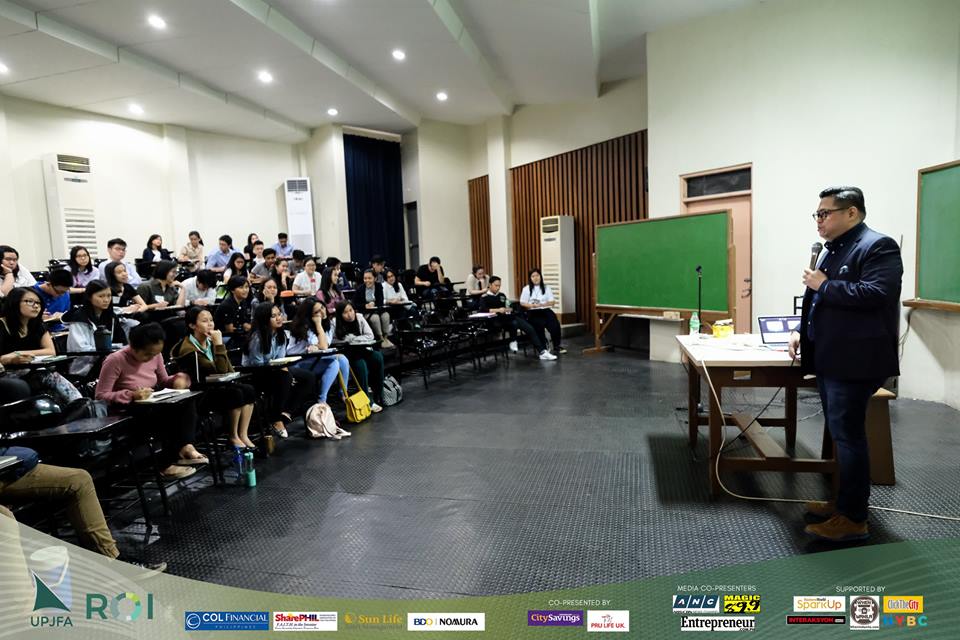
Thinking about treating yourself to a new gadget or a trip abroad with your 13th month pay? How about holding off on that and doing something that has long-term benefits instead? It might not be as exciting, but trust personal finance coach Randell Tiongson to have your best interests in mind.
In an interview with InterAksyon Lifestyle after his talk at the Return on Investment finance summit, organized last month by the University of the Philippines Junior Finance Association in UP Diliman, Tiongson gave four suggestions on what to do with one’s 13th month pay.
“My first tip is, it’s always a good idea to, if you have any debt, use that to pay down debt,” he said. “And maybe you might not be able to wipe it out, but in any case, whenever you pay your debt, there’s more money for you to use, right? So again, it frees you up.”
His second recommendation is to start an emergency fund. You’ll never know when an accident or even a natural calamity will happen, so it’s best to be prepared.
On his website, www.randelltiongson.com, the author encourages his readers to have an emergency fund that can cover about three to six months of living expenses.
Here’s his third proposal: “If it’s a sizable bonus, maybe you can use it to buy a mutual fund, buy a UITF (Unit Investment Trust Funds).”
In his column for the Philippine Daily Inquirer, “Money Matters”, he describes UITFs as “pooled funds offered by the trust department of the major banks of the country.” In turn, pooled funds are “investments where people put their money, with an investment manager handling the investments.”
Tiongson points his audience to the website of the Trust Officers Association of the Philippines, www.uitf.com.ph, to learn about the concept further.
He also differentiates mutual funds and UITFs on his site: “UITFs are offered by banks, while mutual funds are their own companies. By buying into a UITF, you own units of this fund. By buying into a mutual fund, you own shares and become a shareholder in the mutual fund company.”
His final piece of advice could possibly stem from strong faith.
“And of course, share,” Tiongson said.
How about contributing to the rehabilitation of Marawi City? Many organizations are pitching in to help, including TV5’s corporate social responsibility arm Alagang Kapatid Foundation, which is looking into training residents to revive their culture of weaving.
Caritas Manila, the social services and development arm of the Roman Catholic Archdiocese of Manila, is also active in providing support to internally displaced persons originally from the now war-torn city.
For donation details, read: www.interaksyon.com/assistance-for-marawi-concert-telethon-donation-drive-3-ways-to-help-marawi-residents-rebuild-lives/.

Meanwhile, Tiongson also gave financial advice to the senior high school students who attended his talk at the Return on Investment finance summit.
First, he urged everyone to have a healthy cash flow. “It doesn’t make sense” to have a P100,000 salary and spending Php99,999 of it.
Tiongson then lifted a quote from “Fight Club” for the audience to chew on: “We buy things we don’t need, with money we don’t have, to impress people we don’t like.”
To young members of the workforce, he recommended a 70-30 distribution of income, with 70 percent being the limit to their expenses, and 30 percent being the allocation for savings and investments.
“When you start your work, then you start to save, then you need to invest,” he added. “In investing, time is your greatest ally.”
A 21-year-old who starts investing P2,000 per month can have Php1.5 million by the time he or she is 41. Invest early, wisely, and regularly, Tiongson advocated.
He also told the students to learn from their mistakes and the mistakes of others, while finding mentors who can teach them further.
“Have a budget,” Tiongson added. “If you can’t control your money, making more won’t help.”
As a reminder, he said, “The future you will either curse or thank the younger you.”
Want more suggestions on what to do with your 13th month pay? Read Tiongson’s article here: www.randelltiongson.com/10-things-to-do-with-your-13th-month-pay/.







